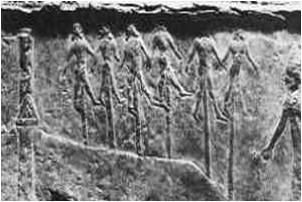
History records that the Assyrians were ruthless to any enemy that tried to withstand them. One inscription from an Assyrian King Tiglath-Pileser records:
Source:

History records that the Assyrians were ruthless to any enemy that tried to withstand them. One inscription from an Assyrian King Tiglath-Pileser records:
Source:
Geographically, the Old Testament “world” extended from the Nile river in the south west, to eastern Greece in the north west, to the Caspian Sea on the north east to the mountains just east of the Persian Gulf on the south east. The entire area ...
The Dead Sea holds several significant aspects in biblical and historical contexts. Here are some key points: Geological and Natural Features: The Dead Sea is a saltwater lake located at the lowest elevation on Earth. Its high salt concentration make...
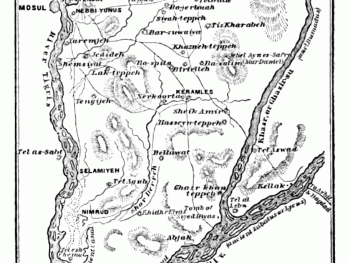
The land of ancient Assyria was located in the far north of the Tigris river near modern Mosul. In their earliest history Assyria was a small territory on the left bank of the northern Tigris River. Over time their borders extended to the area be...
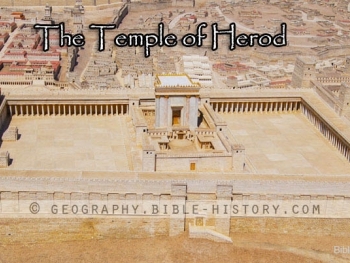
The Platform for the Temple compound built by Herod the Great was a monumental feat, considering the steepness of the surrounding terrain. According to scholars the flat platform measured 1041 feet on the north side, 1556 feet on the east side, 929 f...
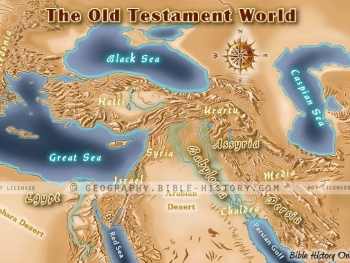
The Caspian Sea was not mentioned in the Bible. In Old Testament times the Caspian Sea was mainly just a large body of water marking the northeast corner of what we recognize as the world of the Old Testament. One interesting fact is that the Caspian...
The five primary sources we have for the events in the life of Alexander are Diodorus Siculus, Quintus Curtius Rufus, Plutarch, Lucius Flavius Arrianus, and the Alexander Romance. “For I myself believe that there was at that time no race of mankind...
Ancient Rome is often associated with grand architecture, legendary emperors, and mighty legions. However, the daily life of women in ancient Rome remains an intriguing and less-explored aspect of this civilization. While gender roles and expectation...
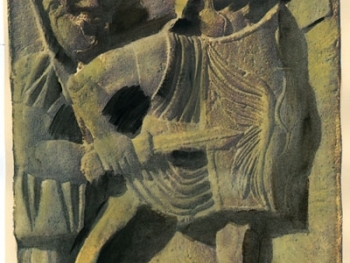
Augustus, the first emperor of Rome had in his empire 25 legions of approximately 6,000 soldiers each. A legion was formed of 10 Cohorts (540 men in each Cohort). Each Cohort was subdivided into 6 Centuries (90 men formed a Century), and each legion ...
The Persian Gulf marked the southeast corner of the world of the Old Testament, with the Caspian Sea marking the northeast corner. Many rivers flow into the Persian Gulf including the famous Tigris and Euphrates rivers. In Old Testament times the nor...
The ancient Greeks and Romans left a lasting legacy in the field of medicine, with their innovative theories and treatments that shaped the foundations of Western medicine. Drawing upon a combination of empirical observations, philosophical insights,...
The ancient city of Babylon, located in Mesopotamia, made significant contributions to the fields of mathematics and astronomy. With a keen interest in celestial observations and a sophisticated numerical system, the Babylonians developed groundbreak...
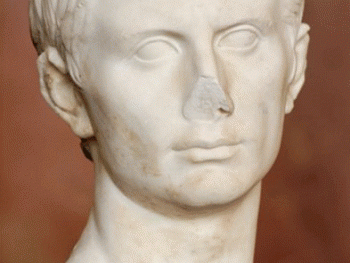
According to history the Emperor of Rome at the time of Jesus’ birth was Augustus. In 27 B.C., the Senate of Rome voted to give him the title Augustus, which means “the respected one.” He ruled the empire until 14 A.D. In the Bible Luke refers ...
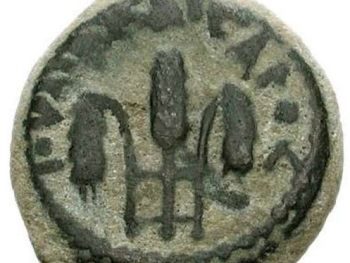
Only the Jewish historian Josephus provides us with what little information is known about Pilate’s life before 26 A.D. when Tiberius Caesar appointed him procurator of Judea. The sketchy information suggests that Pilate was probably an Italian bor...

The ancient sun dial reveals the hours in a day. It has a surface with hour lines and a stick or gnomon which casts a shadow as the sun advances in its daily course. The sun dial is mentioned in the Bible as far back as the time of King Ahaz. Herodot...
The ancient Persian Empire, known for its grandeur and administrative prowess, stands as a testament to the organizational genius of its rulers. From the Achaemenid to the Sassanian dynasties, the Persians created and administered a vast empire that ...
The Bible does not specifically mention the Adriatic Sea as a place of sudden storms. However, the Bible does contain accounts of storms and tempests occurring at sea in various locations, emphasizing the unpredictable and perilous nature of such eve...
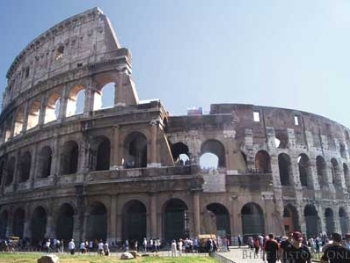
The Colosseum was known in ancient Rome as the Flavian Amphitheatre, named after the 3 emperors who were all involved in its construction. Vespasian conceived the idea and began building in 72 AD and his son Titus dedicated it in 80 AD with a 100 day...
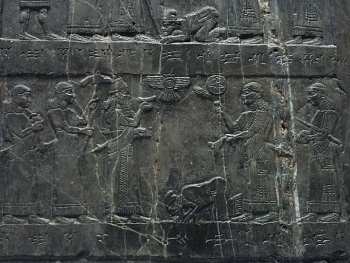
In 1846 an English traveler and artist named Austen Henry Layard was digging around the ruins of ancient Nimrud (known as Calah) in northern Iraq. He discovered something amazing, a black limestone obelisk now referred to as “The Black Obelisk of S...
Welcome to Free Bible: Unearthing the Past, Illuminating the Present! Step into a world where ancient history and biblical narratives intertwine, inviting you to explore the rich tapestry of human civilization.
Discover the captivating stories of forgotten empires, delve into the customs and cultures of our ancestors, and witness the remarkable findings unearthed by dedicated archaeologists.
Immerse yourself in a treasure trove of knowledge, where the past comes alive and illuminates our understanding of the present.
Join us on this extraordinary journey through time, where curiosity is rewarded and ancient mysteries await your exploration.




